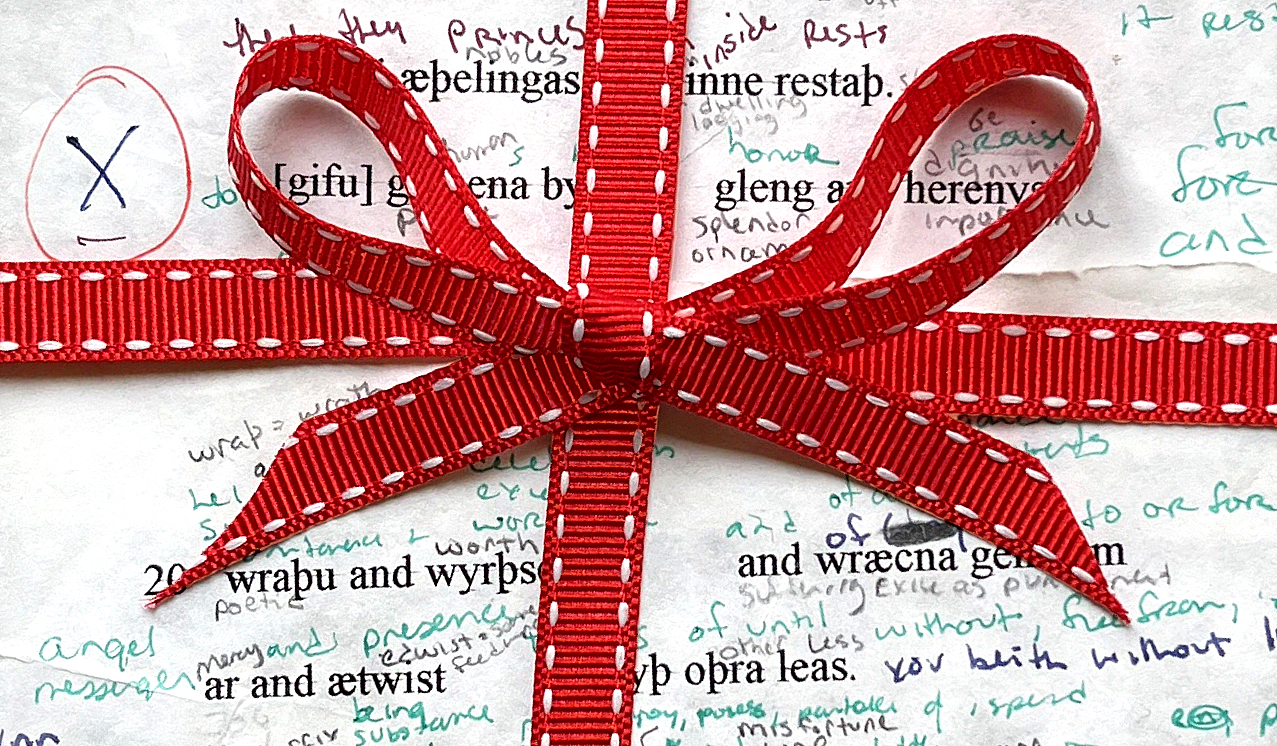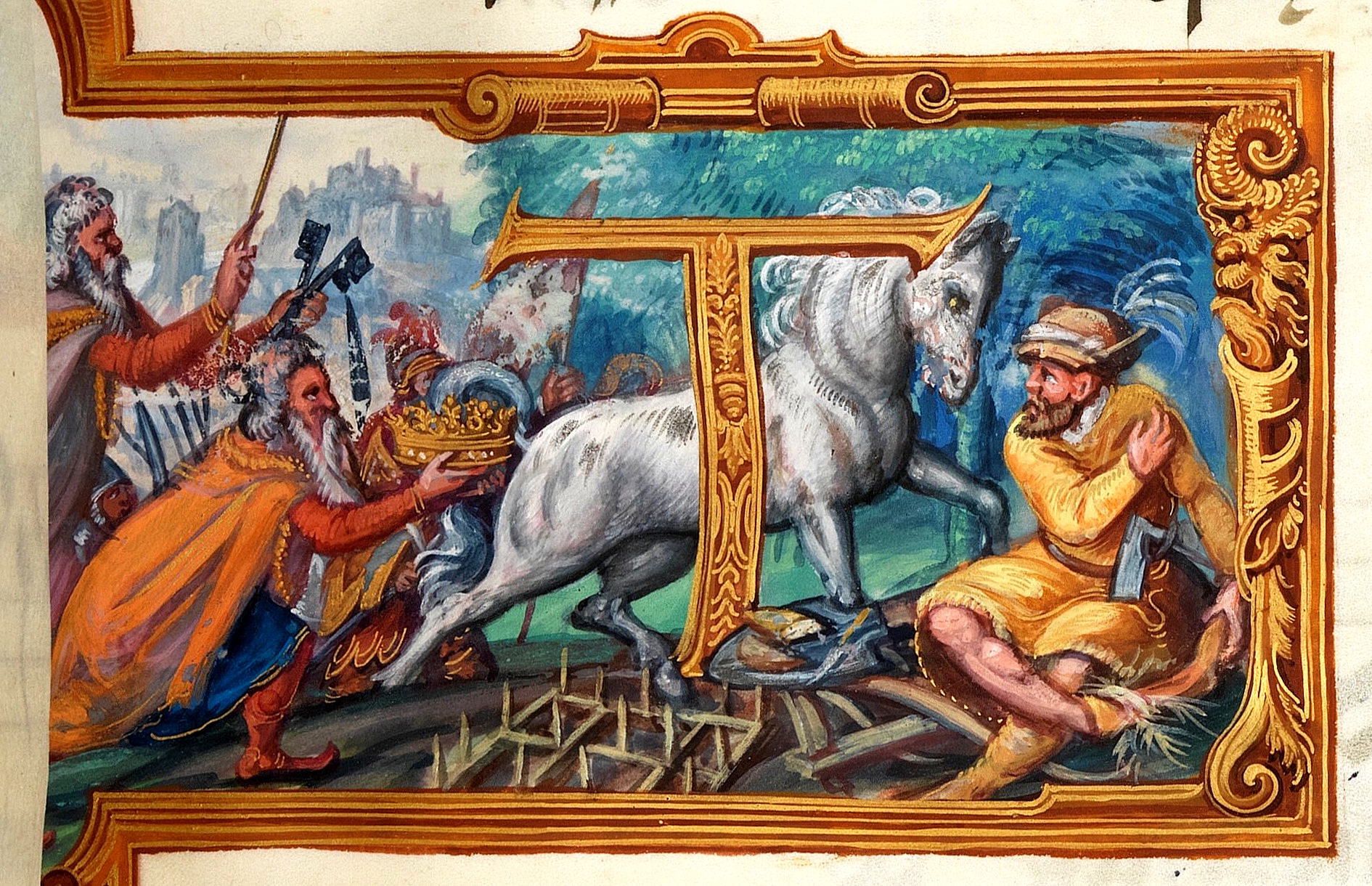 Gift giving was a big deal to the people of the Rune Poem. It was everything. They gave everything. It could be food or goods, but they loved ornament and anything old especially: gilded, edged with silver, blinding shiny, these were the best gifts, but it wasn’t about the bling so much as the message. What you give is what you’re worth and what you will be remembered for. Everybody wants to be worth something and everybody wants to be remembered, it’s the only permanent thing in a world where every single thing is temporary. We are each other’s immortality on earth through the memories we lay down in other people, it’s the only way to live, so by God you will remember me.
Gift giving was a big deal to the people of the Rune Poem. It was everything. They gave everything. It could be food or goods, but they loved ornament and anything old especially: gilded, edged with silver, blinding shiny, these were the best gifts, but it wasn’t about the bling so much as the message. What you give is what you’re worth and what you will be remembered for. Everybody wants to be worth something and everybody wants to be remembered, it’s the only permanent thing in a world where every single thing is temporary. We are each other’s immortality on earth through the memories we lay down in other people, it’s the only way to live, so by God you will remember me.
With the gift comes gleng, which means both ornament and honor, and as is typical in such cases, it’s the intangible half of this pair that’s worth more. It means that not only am I worth what I give you, you are worth what I give you. I give this thing everybody wants to you because I think you are worth it. You get stuff, sure, and you might badly need it, but better than that you gain in the herenys (dignity, importance) which flows from the dignity and importance of your benefactor. This is what you really want: high praise from high places. Others will notice your worth and give to you too, and with more coming in you’ll be in a position to give with both hands. Show them your bounty. You’d be a fool not to part with it. Otherwise, you’re not sitting on a gold mine, you’re sitting on your ass.
Watch yourself. God help you if they hold a moot and decide to punish you for that thing you did. We all saw. The rune carvers’ form of capital punishment wasn’t death it was exile, you’ll be as good as dead. Good luck surviving on your own. You’re going to die out there. You’ll be a total wræcna. Wræc. It means misery, vengeance, persecution, punishment, exile, and something driven away. In Old English one word can tell the whole story.
All is not lost. Yes you are out on your own with nothing, but it’s not nothing nothing. It’s something. It’s two things really: ar and atwist and that’s it, the poem emphasizes that part specifically, that is all you have. What is it? Some words like ætwist only show up in poetry, where it usually means presence. The words æt and wist separately mean food and eating, but poetically, ætwist means existence, being, staying alive and substantial and not decaying away into nothing. You need to eat to exist and look at the state of you. You are almost nothing, but you are not nothing nothing. How? By the other thing you have, ar, another one of those poetical words you won’t find in a written record of your banishment, but maybe in a song about it. It means ore. Ore dug straight from the ground is not yet precious, it has the potential to be precious, but right now it’s in a rock matrix and has to be worked first. It has to be pummeled and melted down. Like you. Ar also means dignity, worth, respect, honor, grace, favor, kindness, mercy, pity, help, multiple words with meanings all dug out of the same vein. Somebody might see your potential to be precious, and pity you. Who? Ar also means a messenger: a herald, a servant of somebody important could show up, even an angel. Wouldn’t that be good right about now, a little divine intervention. Somebody might feed you and you might live because otherwise ðe byþ oþra leas (you are other less). You have nothing else. You are nothing else.



